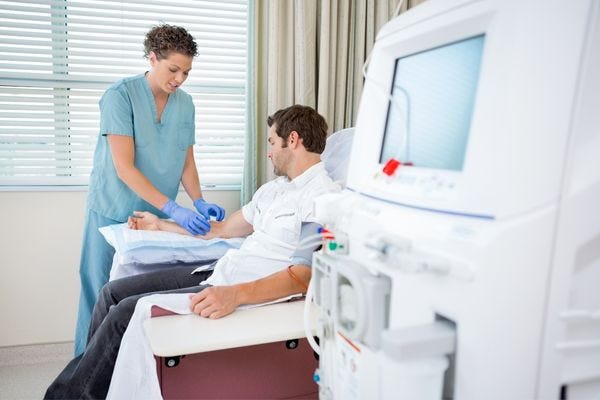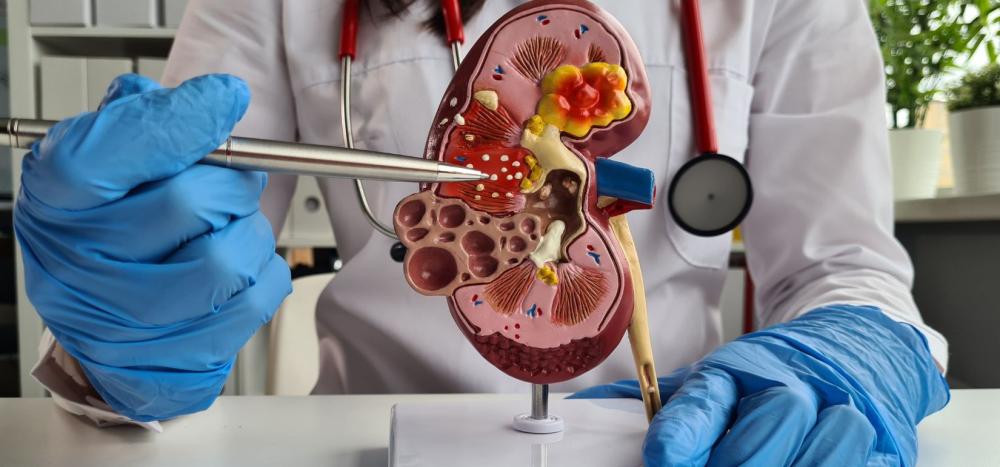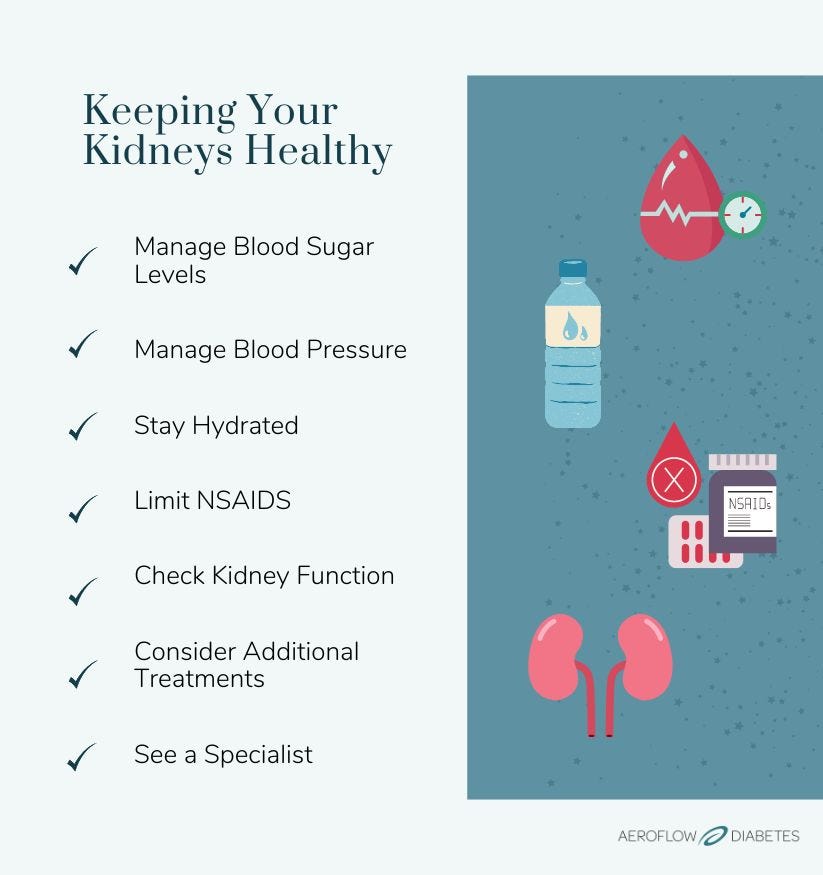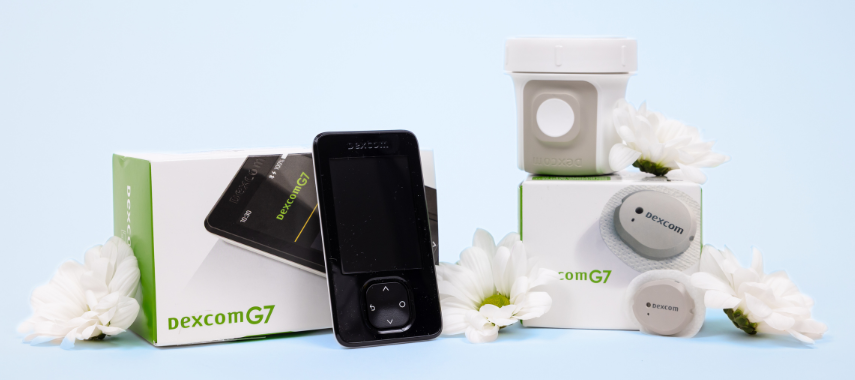March is National Kidney Month! Celebrate with Aeroflow Diabetes and our Diabetes Expert by learning how to prevent and manage kidney damage and diabetes.
How Does Diabetes Cause Kidney Damage?
Diabetic kidney disease is a form of “microvascular” disease, meaning that it causes damage to the small blood vessels in the kidney. This is different from “macrovascular” disease which refers to the large blood vessels (such as the coronary arteries of the heart).
Over time, high blood sugars cause damage to these small blood vessels and impair your kidneys’ ability to filter blood which results in a decline in kidney function.
High blood pressure, which is common in people with diabetes, also causes damage to these small blood vessels. If you have both high blood sugar and blood pressure, it can accelerate kidney damage.
When Does Kidney Damage Occur?
Depending on the degree of blood sugar control, some people can develop signs of kidney impairment within just a few years of having diabetes. Typically though, diabetic kidney disease occurs after a person has had diabetes for more than 10 or 20 years.
But it is more about how well-controlled your blood sugar levels are instead of how long you have had diabetes. For example, people who have good control of their diabetes may never develop any significant kidney disease, even over the course of many decades.
Signs & Symptoms
Most people are unaware they have kidney disease since it typically does not cause symptoms. Recent studies have actually shown that many people are not even made aware they have kidney disease until it is well advanced. Sometimes this is because the decline in kidney function is slow and gradual so it gets overlooked.
Kidney disease itself typically doesn’t cause symptoms until it is near what they call the “end stage” which is when the kidneys have very minimal function and can’t clear toxins and other things from the blood. This is when people may need dialysis which is an artificial means of filtering the blood.
Symptoms of Later Stage Kidney Failure
- Nausea or vomiting.
- Lack of appetite.
- Itching
- Weight loss.
- Fatigue and sleeping problems.
- Swollen feet and ankles.
- Chest pain or shortness of breath.
- High blood pressure.


Risk Factors
Whether you have type 1 or type 2 diabetes, the risk of kidney disease has to do with how high your blood sugars are over time. People with uncontrolled diabetes can develop kidney disease much sooner than those with better blood sugar control.
High blood pressure tends to be more common in people with type 2 diabetes, so this can certainly put them at somewhat higher risk.
Since gestational diabetes causes high blood sugars typically only during pregnancy, this is not a long enough time to result in kidney damage from blood sugars. However, people who have gestational diabetes are certainly at increased risk for diabetes that can persist or develop after pregnancy.
Can You Reverse Kidney Damage?
Acute kidney damage may be reversible with dialysis and treatment of the underlying cause, but later-stage kidney disease is unfortunately not reversible.
For years, the standard of care for people with diabetes and diabetic kidney disease has been ACE inhibitors or angiotensin receptor blockers. These are blood pressure medications that have been shown to have a protective effect from diabetic kidney damage. Because of their “renoprotective” effect, your healthcare provider may prescribe you one of these medications even if you do not have high blood pressure.
There are new diabetes medications called SGLT2 inhibitors that have also been shown to slow the progression of diabetic kidney disease.
These include medications such as:
- Farxiga
- Jardiance
- Invokana
In addition, there is a newer treatment option called finerenone (Kerendia) that has also been approved to treat and slow the progression of diabetic kidney damage.


How to Keep Your Kidneys Healthy
Manage Blood Sugar Levels
Maintain good blood sugar control by keeping your hemoglobin A1c at the recommended goal (typically at least under 7% for most people).
A great way to manage your blood sugar levels is to use a Continuous Glucose Monitor (CGM). CGMs are revolutionary tools for people with diabetes that help measure your blood glucose levels without painful fingersticks. If you have diabetes, you may qualify to get a CGM through insurance with Aeroflow Diabetes! Fill out our 5-minute Eligibility Form today to see if you can get your diabetes management supplies delivered straight to your front door.
Manage Blood Pressure
If you have high blood pressure, the preferred blood pressure medications are ACE inhibitors and angiotensin receptor blockers, so make sure you are taking one of these agents if you are being treated for high blood pressure.
Stay Hydrated
Drinking plenty of water is very important in keeping your kidneys healthy as it can help to filter out toxins.
Limit NASAIDS
It’s important to limit medications like NSAIDs (ibuprofen, naproxen, etc.) since these can cause kidney damage when taken excessively.
Check Kidney Function
Ensure your healthcare provider checks your kidney function (which is done by a blood test called BUN and creatinine), as well as your urine microalbumin, at least once a year. You should also talk with your healthcare provider about your kidney function and how much it has changed over time.
Consider Additional Treatment Options
If you already have signs of diabetic kidney damage, discuss additional treatment options such as SGLT2 inhibitors and finerenone with your healthcare provider to help slow the progression of kidney disease.
See a Specialist
If you have worsening kidney function, your healthcare provider may refer you to a kidney specialist (AKA nephrologist) to assist in your treatment.
Information provided on the Aeroflow Diabetes website is not intended as a substitute for medical advice or care from a healthcare professional. Aeroflow recommends consulting your healthcare provider if you are experiencing medical issues relating to diabetes care.










